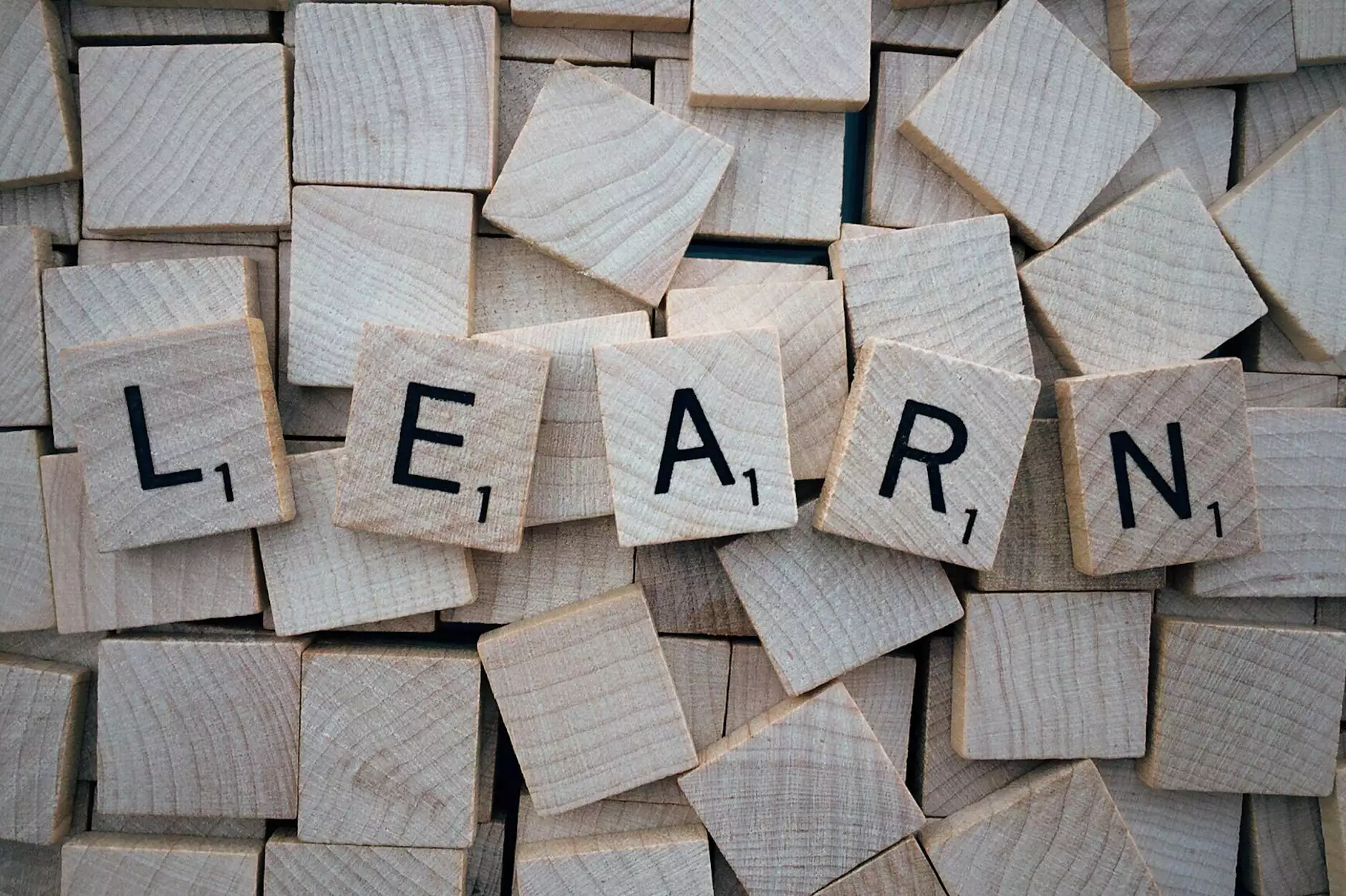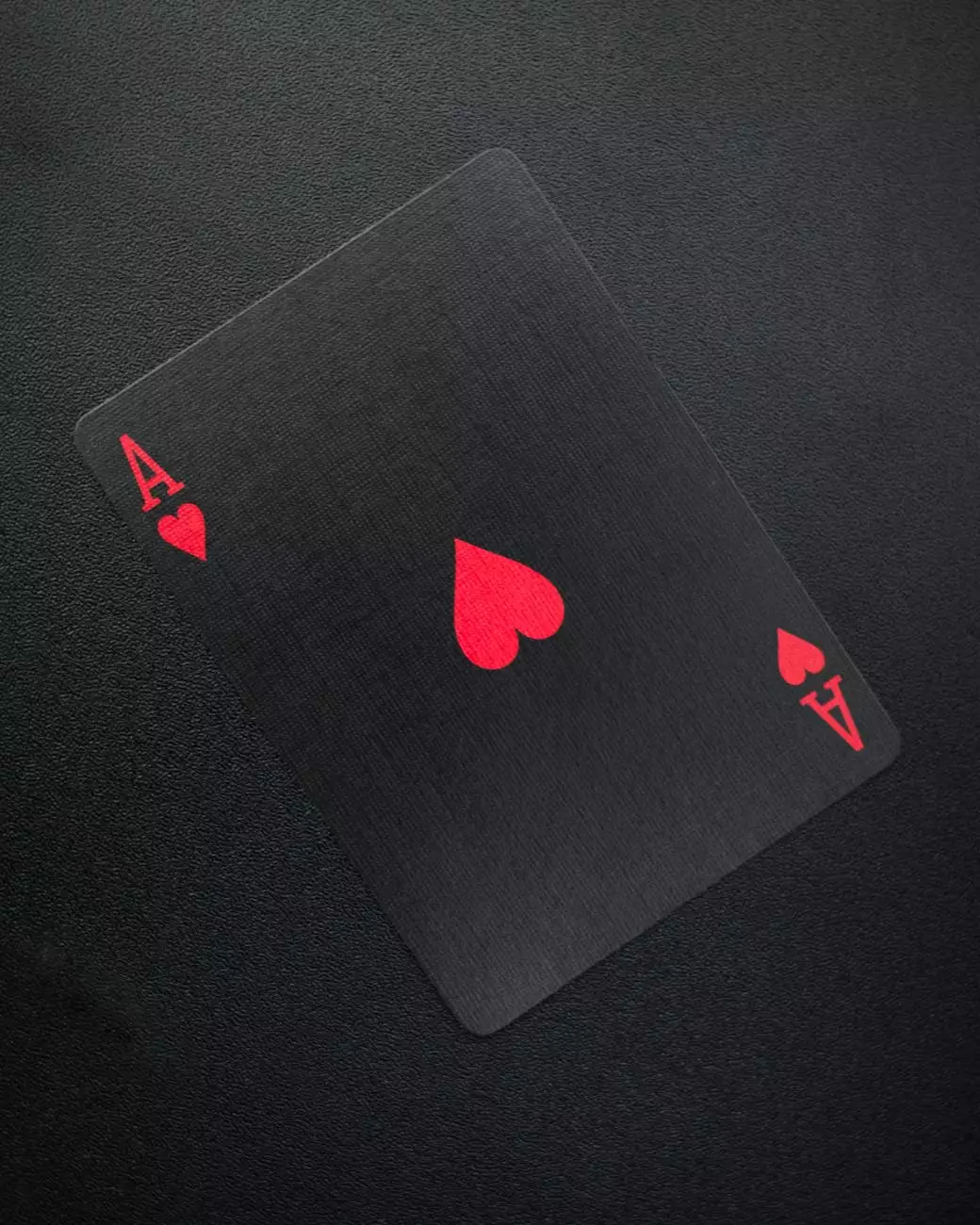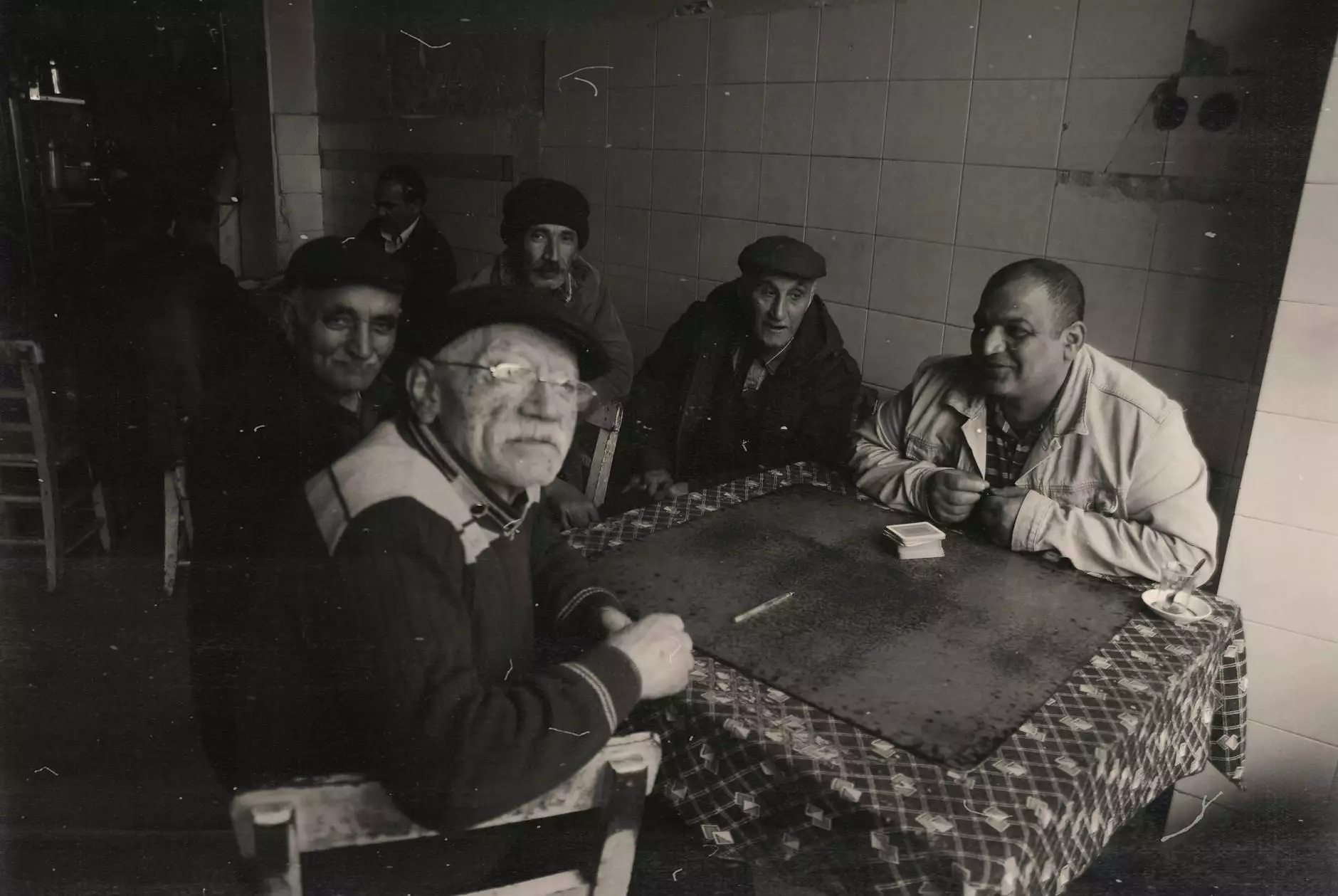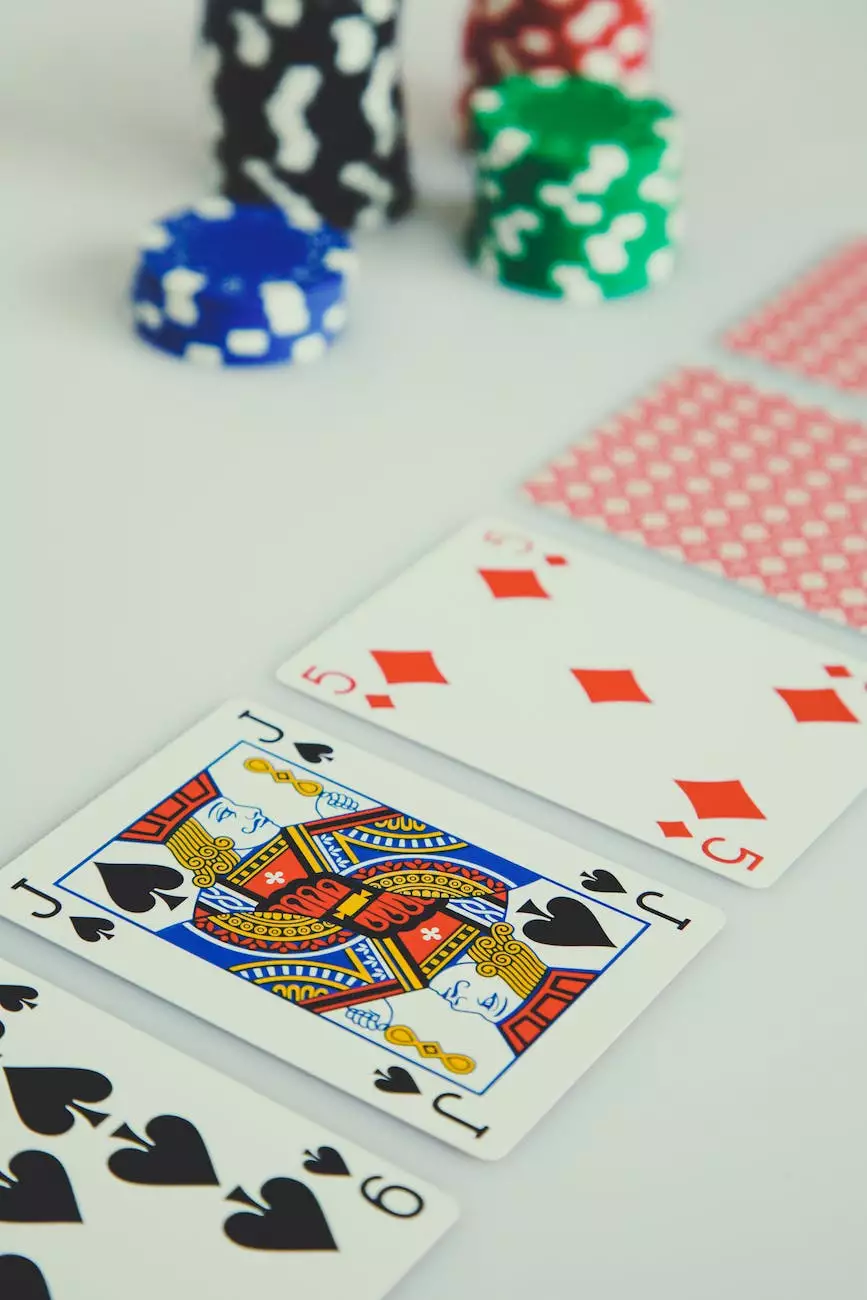Poker Terminology: Words Every Beginner Must Learn
Poker Laws
Introduction
Welcome to the Friars Club of Calif, your ultimate resource for all things related to poker. In this comprehensive guide, we will delve into the essential poker terminology that every beginner must learn and understand. As a novice poker player, familiarizing yourself with these words and phrases will not only enhance your gameplay, but also ensure that you can effectively communicate with other players at the table.
1. Ante
The term "ante" refers to a small forced bet that all players must place into the pot before the cards are dealt. This ensures that there is always something to play for from the very beginning of each hand.
2. Blinds
In poker, the "blinds" are forced bets placed by the two players sitting to the left of the dealer button. The player immediately to the left of the dealer places the small blind, while the player to their left places the big blind. Blinds are used to create initial action and build the pot.
3. Flop
The "flop" refers to the first three community cards that are dealt face-up on the table in games like Texas Hold'em. These cards are shared among all players and are used in combination with their own hole cards to create the best possible hand.
4. Turn
The "turn" is the fourth community card dealt in games like Texas Hold'em. After the flop, the turn card is placed face-up on the table. This card, combined with the flop cards and the players' hole cards, further shapes their potential hand.
5. River
The "river" is the fifth and final community card dealt in games like Texas Hold'em. It is placed face-up on the table following the turn. The river card completes the board, and players use it alongside the previous community and hole cards to determine the winning hand.
6. Hole Cards
Hole cards, also known as "pocket cards," are the two private cards dealt face-down to each player at the beginning of a hand. These cards remain hidden from other players and are only revealed during the showdown or if a player chooses to fold.
7. Showdown
The "showdown" occurs at the end of the final betting round when two or more players reveal their hole cards to determine the winner. The player with the best hand, based on the standard poker hand rankings, takes the pot.
8. Pot
The "pot" refers to the total amount of chips or money that players contribute during a hand. It is awarded to the player with the winning hand at the showdown. The pot size is continually updated as bets and raises are made throughout the hand.
9. Check
In poker, to "check" means to pass the current action to the next player without making a bet. A player may choose to check if no one else has bet, allowing them to stay in the hand without risking additional chips. Checking is only possible in situations where betting is not already taking place.
10. Raise
"Raise" is a term used to describe increasing the amount of a previous bet made by another player. When a player raises, they are forcing the other players to either match the new higher bet or fold. Raises help build the pot and add an element of strategy to the game.
11. Fold
To "fold" means to discard your hand and forfeit any chips or money you have already committed to the pot. Players fold when they believe their hand is not strong enough to compete or when they want to minimize losses after assessing the strength of their opponents' hands.
12. All-In
"All-In" refers to a player betting all of their remaining chips or money on a particular hand. When a player goes all-in, they remain eligible to win only the amount of the pot they have contributed to up until the point of their all-in bet. Any additional bets are placed into a side pot for other active players.
13. Flopzilla
Flopzilla is a powerful poker calculator software that allows players to analyze different hand ranges and assess the strength of their own hand against potential opponents. It provides valuable insights into the equity of hands and helps players make more informed decisions.
14. Expected Value (EV)
The "expected value" (EV) is a statistical concept used in poker to calculate the average amount of money a player can expect to win or lose in a particular hand or situation. It helps players make decisions based on the long-term profitability of their choices.
15. Tilt
"Tilt" is a term used to describe a state of emotional and mental frustration or confusion that affects a player's decision-making ability. Tilt often occurs after a series of unfortunate hands or bad beats and can lead to irrational and impulsive play.
16. Position
"Position" in poker refers to a player's seat at the table relative to the dealer button. The closer a player is to the dealer button, the later their position and the more advantageous their position becomes. Players in later positions have more information about their opponents' actions before deciding on their own course of action.
Conclusion
Congratulations! You are now equipped with essential poker terminology that every beginner must learn and understand. By familiarizing yourself with these words and phrases, you'll be able to confidently navigate the poker table and communicate effectively with other players. Remember, practice and experience are key in improving your poker skills, so keep playing and honing your strategies. Best of luck at the tables!










